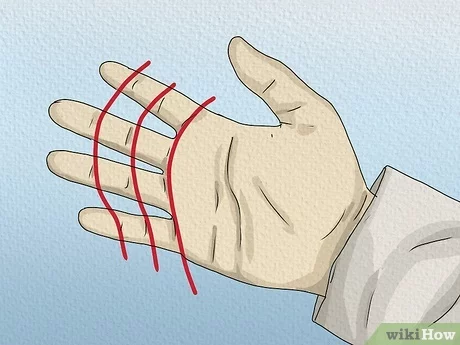The fasting person is one who protects his body parts from indulging in sins, his tongue from lying, obscenities and all types of falsehood and his stomach from eating and drinking. Therefore, if he speaks he must try not to speak anything that reduces the value of his fast and if he does any action, he does not do anything to nullify his fast. Thus, his speech will be good and his actions righteous. So the legislated fast is not only the mere abstinence from food, drink and desires, but it is incumbent upon the fasting person to also shy away from any action that would reduce the value of his fast or destroy it, so that he will benefit from his fasting and achieve Taqwaa (Allah consciousness), as Allah (T) said, which means:
"Fasting is prescribed on you as it was prescribed upon those before you so that you may achieve Taqwa. " [Al-Baqarah 2:187]
This Taqwaa can only be achieved by the person who abstains from all evils no matter how small.
Abu Huraira (R) said that the Messenger (S) of Allah (T) said: "Whoever does not avoid false speech and acting on it, Allah (T) does not have any need for him to leave his food and drink". [Bukhaaree]
Abu Huraira said that the Messenger (S) said: "Fasting is not (merely) to leave off eating and drinking, but it is to abstain from vain talk and obscene behaviour". Therefore, if anyone insults you or behaves foolishly towards you, then say: "I am fasting, I am fasting." [Bukhaaree]
For this reason there has reached us strong reprimand from the Messenger (S) for anyone who involves in these types of evil behaviours, he (S) said: "All that some people gets from their fasting is hunger and thirst. " [Ibn Majah, Daramee]
10. THINGS THAT BREAK THE FAST
There are many things that the fasting person must avoid because if he does them during the daytime of the month of Ramadaan his fast would be void, and he would have increased his sins. The following are things that break the fast:
Intentional eating and drinking
Allah (T) said:
{And eat and drink until the white thread of Fajr becomes distinct from its black thread, then complete the fast until the night.} [Baqarah 2:187]
This verse shows that the fasting is abstaining from eating and drinking and therefore whoever intentionally indulges in either of them has destroyed his fast. However, if eating or drinking is done through forgetfulness or being mistaken, or it is done under duress then his fast is still valid and he does not have to make it up.
The following hadeeth establishes this.
The Messenger (S) said: "If anyone forgets and eats and drinks, then let him complete his fast because it is Allah who fed him and gave him to drink." [Bukhaaree and Muslim]
He (S) also said: "Indeed Allah (T) has freed my Ummah from the burden of mistakes, forgetfulness and what they do under duress." [Al-Haakim, Ad Daarqutnee]
Note:
Qadaa (one dayof fasting) has to be made for intentional eating and drinking.
Intentional vomiting
If someone is overtaken by vomit then he continues his fast and completes it to the end of the day it would be valid. If, however he intentionally vomits then his fast for that day is voided. This is based on the following Hadeeth. The Messenger (S) said: "Whoever is overtaken by vomiting then he does not have to make up that day. Whoever vomits intentionally must make up a day." [Abu Dawood, Ibn Maajah, Ahmad]
Note:
Qadaa of one day has to be made up for every day missed.
Menstruation and post-childbirth bleeding
If the woman starts menstruating or post childbirth bleeding anytime during the daytime of Ramadaan, regardless if it is at the beginning or at the end of the day, then her fast is broken and she has to make it up at another time after the month is finished. If she decides to continue her fast it will not be valid.
The prophet (S) said: "Is it not so that if she starts menstruating she does not pray nor fast? We said: "Yes" He (S) said: "Then that is defect in her Deen (religion)."
Aa'isha (R) was asked: Why does the menstruating woman have to do Qadaa for the fasting that she misses and she does not have to do Qadaa for the Salaat (prayer)?" She answered: "This used to affect us and we used to be commanded to do Qadaa for the fasting and not for the Salaat."
Note:
One day has to be made up for each day missed.
Nutritional feeding from other than the mouth
This breaks the fast because it takes the place of eating and drinking. This ruling is derived by Qiyaas (analogy).
Note:
One day has to be made up for each day missed.
Intentional sexual intercourse
This is based on the saying of Allah (T):
{…And now you can have intercourse with them…} [Baqarah2:186]
Meaning that during the duration of the fast sexual intercourse is forbidden. Whoever's fast is broken because of sexual intercourse during the daytime of Ramadaan must do Qadaa and Kafaara based on the following Hadeeth
Abu Huraira said, a man came to the Messenger of Allah and said: "O Messenger of Allah I am destroyed."
The Messenger of Allah (T) said: "What destroyed you?"
He said: "I had sexual intercourse during Ramadaan."
He (S) said: "Are you able to free a slave?"
He said: "No."
He (S) said: "Are you able to fast two consecutive months?"
He said: "No."
He (S) said: "Are you able to feed sixty poor people?"
He said: "No."
He (S) said: "Sit!" So he sat, and someone brought a basket with dates. The prophet (S) said: "Give it in charity."
He said: "There is none that is poorer than me."
He (the narrator) said: "Then the Messenger (S) laughed until his molar teeth could be seen and then he said: "Go and feed your family with it." [The Group]
11. THE TARAWEEH PRAYER
Establishing the night prayer during the nights of Ramadaan
It is established in the Shar'iah that this Salaah (Prayer) was offered in congregation by the Messenger of Allah (S).
Aa'isha said: "The Messenger of Allah (S) went out during the late part of the night and prayed in the masjid and some men prayed with him. The following day the people began to talk about it and then more people prayed (on the following night). Again the following morning the people began to talk about it, and on the third night many more people came out. The Messenger (S) Of Allah (T) came out, and they all prayed with him. On the fourth night the masjid was unable to hold the amount of people that came out, however, the Messenger (S) (did not come out). He (S) came out for the Fajr Salaat instead. After finishing the prayer he turned to the people and declared the Shahadah and said: "Your position was not hidden from me, but I was fearful that it would be made obligatory upon you and then youwould become unable to continue establishing it." [Bukhaaree]
The Messenger (S) of Allah (T) died and the affair relative to the Taraweeh salaah remained thus (i.e. it is recomended and it can be prayed in congregation). This is because the fear for it to become compulsory was removed after his (S) death. The rightly guided Caliph Umar Ibn al-Khattaab revived this Sunnah of having the prayer of Taraweeh in congregation.
Abd Ar-Rahman said: "I went out with 'Umar (R) to the masjid during one night of Ramadaan and the people were divided. You could see one person praying by himself while another would bepraying and others would pray with him. 'Umar then said: "I see that if I bring together these people and make them all one congregation led by one person that would be better. He then decided to do this: so he gathered them and made Ubay Ibn Ka'b as their Imaam. Then I went out with him on another night and the people were praying behind their Imaam. Umar said: " What a good thing this is..". [Bukhaaree]
The Number of Raka'at for the Taraweeh Salaat
There is difference among the scholars about the number of raka'at to be established for the Night Prayer of Ramadaan. However, the correct amount is established by what the Messenger (S) did i.e. eight raka'at and three raka'at for the Witr prayer.
Aa'isha said "Allah's Messenger (S) never exceeded eleven raka'at in Ramadaan or during other months (for the night prayer). [Bukhaaree].
There is no evidence to suggest that the Messenger (S) prayed both Tahajjud and the Taraaweeh prayer on those four nights (relying on the fact that the Tahajjud and Taraaweeh prayers are two different prayers). All the various names such as Tahajjud, Taraaweeh, Qiyaamul-Lail refer to the eight raka'ahs and three witr which the Messenger (S) used to prayer whether in Ramadaan or not as Aa'ishah has explained.
Jaabir Ibn 'Abdullah agreed with 'Aaeisha, he said: " When the Prophet prayed with the people one night during Ramadaan he prayed eight raka'at and then made Witr." [Ibn Hibbaan].
When Umar enlivened this practice of having the Taraweeh prayer done in congregation under Ubay Ibn Ka'b, he had him pray eleven raka'at as was the practice of the Messenger (S). Sa'eed Ibn Yazeed said. "Umar lbn Al-Khataab ordered Ubay Ibn Ka'ab and Tameeman Ad Daarie to establish eleven raka'at with the people. The reciter used to recite hundreds of verses and we used to lean on our sticks because of their long standing, and we did not leave until the beginning of Fajr." [AI-Muwatta of Immam Maalik]
The above is the most authentic narration relative to the number of raka'at that Umar (R) had established. Any other narration relative to the number of rakaah (most of them are related to Umar) for the night prayer is weak. Furthermore they contradict what is firmly established from the Messenger of Allaah (S).
Post Disclaimer | Support Us
Support Us
The sailanmuslim.com web site entirely supported by individual donors and well wishers. If you regularly visit this site and wish to show your appreciation, or if you wish to see further development of sailanmuslim.com, please donate us
IMPORTANT : All content hosted on sailanmuslim.com is solely for non-commercial purposes and with the permission of original copyright holders. Any other use of the hosted content, such as for financial gain, requires express approval from the copyright owners.
 Sri lanka Muslims Web Portal Sri Lanka Muslims News Center
Sri lanka Muslims Web Portal Sri Lanka Muslims News Center



